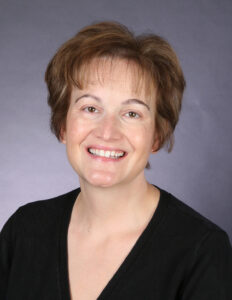
“Adaptive functioning” refers to people’s ability to navigate their environment. In the new edition of the Diagnostic and Statistical Manual of Mental Disorders (DSM-5), the American Psychiatric Association put an increased emphasis on measuring adaptive functioning to diagnose and treat various mental health conditions. Yet many practicing clinicians are still mystified by these assessments and don’t feel comfortable conducting them.

That’s where Demystifying Adaptive Functioning comes in. The two-day intensive course, offered by the University of Wisconsin-Madison Division of Continuing Studies, will give medical, social, and behavioral health care providers the training they need. Held on December 3-4 at Madison’s DoubleTree by Hilton, it’s a practical skill-building workshop that explores a variety of assessment tools.
“In a time of declining resources, this course will help agencies better determine the needs of people with behavioral health concerns,” says Kristi Obmascher, program director for Continuing Studies’ behavioral health programs. “Participants will have a chance to practice assessment tools and go home with skills they can use.”
Roleplays and reviews

Georgiana Wilton, one of the instructors for Demystifying Adaptive Functioning, is a senior scientist in the Department of Family Medicine at the UW School of Medicine and Public Health. She regularly assesses children and adults with developmental, social, and behavioral health concerns.
“The course will provide a theoretical basis so participants understand the various components of adaptive functioning,” Wilton says. “Then they’ll get in-depth experience with the assessments, including role-plays and a standardized review (via videotape) of a mock-client assessment.”
Wilton notes that Demystifying Adaptive Functioning will be especially helpful for Wisconsin clinicians.
“These tools can provide useful information in the assessment of fetal alcohol spectrum disorders,” she says. “Wisconsin is a high-risk state for alcohol use during pregnancy, and many clinicians are seeing clients with these disorders who are yet to be diagnosed.”
By providing needed education for clinicians, Demystifying Adaptive Functioning will play a part in improving clients’ lives.
“With more clinicians trained in adaptive functioning assessment,” Wilton says, “individuals at risk won’t have to wait as long to receive this service.”
For more information on Demystifying Adaptive Functioning, contact Kristi Obmascher, kristi.obmascher@wisc.edu, 608-262-8971.